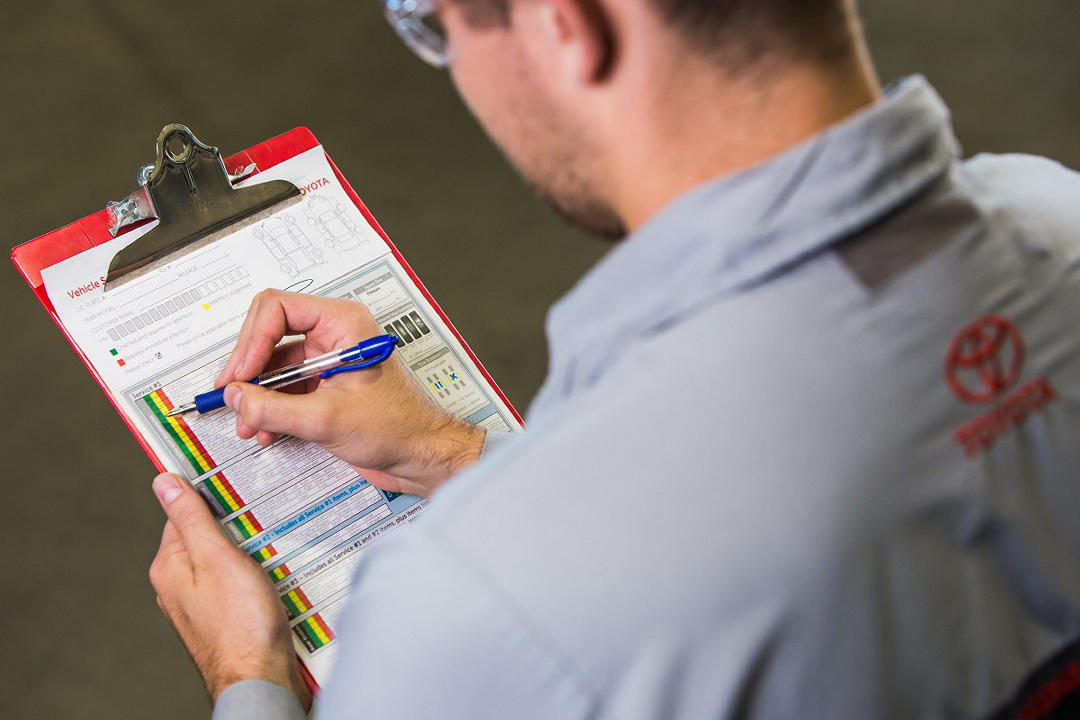LANGUAGES

Toronto, July 31, 2020 – Since mid-March, most Canadians have dutifully followed the recommendations of health officials to stay home. Now that these restrictions are being gradually loosened, giving people across the country the green light to get out and about more, many are longing for some sort of trip. For some, this means a quick getaway to a provincial park, a camping or cottage adventure with their kids, or a well-overdue visit with family out of town. Regardless of the destination, the majority of Canadians are now looking to their vehicle as a safe way to travel this summer.
“Over the past several months, it’s safe to say that many Canadians stayed home and drove a lot less than normal so, as they prepare to get back on the road, it’s a good idea to make sure their vehicle is ready,” said Bryon Stremler, National Manager, Product Quality and Service Support at Toyota Canada. “There are many quick and relatively inexpensive steps drivers can take to give themselves extra peace of mind as they plan their summer road trip.”
In a national survey conducted in June by Ipsos on behalf of Toyota Canada, 70 percent of respondents said they feel comfortable travelling by vehicle outside of their community. What’s more, 49 percent responded that they planned to make at least one day trip over the summer months.
But before hitting the road, drivers should make sure their vehicle is ready. When in doubt, Stremler says Canadians should contact their local dealership to book a multi-point inspection where a trained technician will perform visual inspections and other tests on the vehicle’s critical systems. Here’s a list of the items a Toyota technician is trained to check:
- Tires: Tires should be checked for correct pressure, tread depth, and damage. Rims should be checked for damage and the lug nuts should be properly secured but not over-tightened. Don’t forget the spare tire!
- Brakes: Brake pads, rotors, hoses and calipers should be inspected for wear, leaks and proper operation. The emergency brake should be tested to ensure it engages and disengages properly.
- Around the vehicle: Wiper blades, headlights, brake lights, turn indicators, daytime running lights, and reversing lights should all be checked to ensure they’re functioning properly.
- Underneath: There’s a lot going on just inches above the road. The shock absorbers and other suspension components, steering components, drive shaft and exhaust system should all be checked. So should fuel lines. Any under-body protector plates or aerodynamic cladding should be securely fastened. And components such as the transmission, differential, transfer case and engine should be inspected for fluid leaks.
- Under the hood: Vital components in the engine bay should be inspected. These include engine oil, transmission oil and other fluid levels, windshield washer fluid, the engine air filter, drive belts, water and air conditioning hoses. And the battery’s charge should be tested.
- In the cabin: Check to make sure the air conditioning, audio system and other features are working properly. Ensure the floor mats are correctly installed and that the retaining clips are in place. While inside, it’s a good idea to note down the Vehicle Identification Number (VIN) and check that the vehicle is not subject to any outstanding recall notices. For Toyota vehicles, these can be found by entering the VIN on the Toyota website. (The VIN is typically found on the front of the dashboard, on the driver’s side, and can be viewed through the front window. The VIN may also be found on the driver’s side door pillar.)
According to Stremler, once the vehicle has passed inspection, it’s time to check on road trip supplies. In addition to things such as phone chargers, sunscreen, and other essentials, this year’s pandemic and the resulting local health regulations mean Canadians should ensure they’ve packed enough face masks for all travelers, plus soap or hand sanitizer. They may also want to take some time before the trip to clean and disinfect surfaces inside the vehicle, and then take along some cleaning supplies for the road.
“This may not be the summer we anticipated at the start of the year,” said Stremler. “But, with adequate precautions taken, there are still plenty of fun and safe ways to get on the road, explore Canada, and enjoy some adventures in 2020.”
Every effort has been made to ensure the product specifications, equipment, and content on this site are accurate based on information available at time of publishing. In some cases, certain changes in standard equipment or options may occur, which may not be reflected online. Toyota Canada reserves the rights to make these changes without notice or obligation.